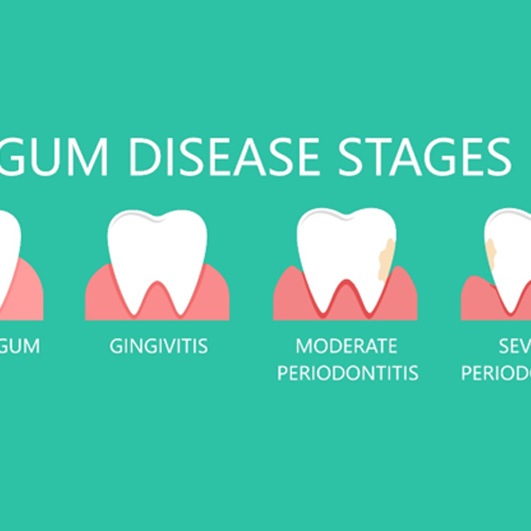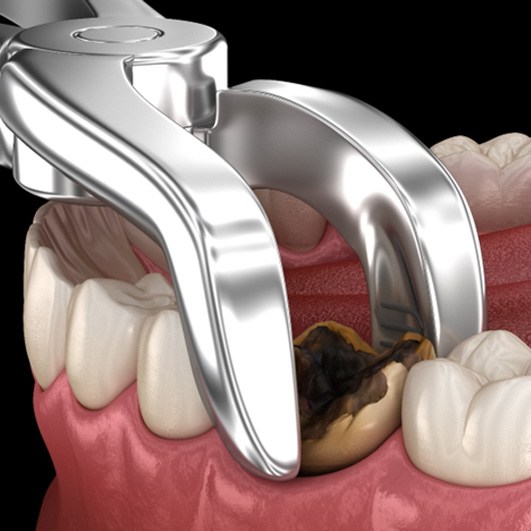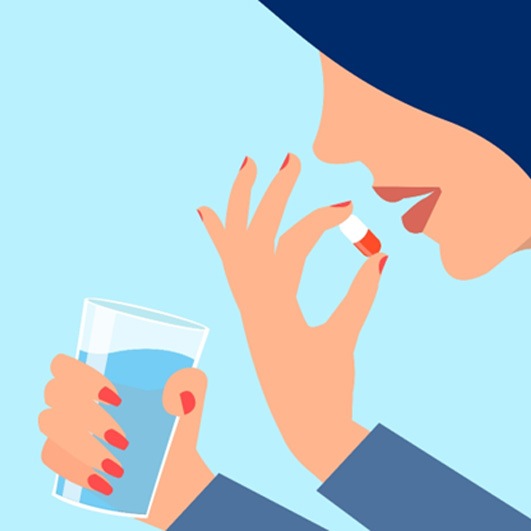A primary goal in dentistry is to preserve your natural teeth since you only get one set, after all. However, there are circumstances of decay or disease where the best move for your oral health is to have one or more of your teeth extracted. At Nu Dental Barnegat , Dr. G is qualified to keep you comfortable during the process, as he offers oral conscious sedation or nitrous oxide. Sometimes removing a tooth is the best option. To learn more, continue reading or contact our office for an appointment!
Why Are Tooth Extractions Necessary?

A tooth extraction will only be considered after all other options have been explored. Our goal will always be to repair your damaged tooth with a dental crown or root canal therapy. But there will be emergency dentistry situations where tooth extractions in Barnegat are recommended, such as:
-
Severe tooth decay
-
Severe gum disease
-
An impacted tooth – most commonly involves wisdom teeth
-
Overcrowding – can make oral care more difficult, cause bite problems, or set the stage for impaction
-
Fractured tooth
-
Tooth luxation – injury to the tissues, ligaments, or bone supporting your tooth
If Dr. G recommends a tooth extraction, it is important to take action, so you do not risk more severe complications in the future.
The Process of Removing a Tooth

Your dentist in Barnegat will assess your affected tooth and surrounding gums, plus take dental X-rays. You will have the option to choose between nitrous oxide or oral conscious sedation to keep you comfortable. Next, local anesthesia will be given to numb the tooth and surrounding gum tissue.
Using specialized instruments, your dentist will gently loosen your tooth and lift it from the socket. If your tooth is badly decayed or has broken off at the gumline, it may be necessary to make incisions in the gums to access it. Once removal is complete, the socket is cleaned and disinfected. Stitches may be placed to promote healing.
Tooth Extraction Aftercare

After the extraction procedure, you will receive post-op instructions to help you recover with minimal discomfort. To ensure your mouth heals properly, be mindful of these aftercare tips:
-
Drink plenty of water and get some rest to promote healing
-
Use a cold compress on the outside of your mouth to manage pain and swelling
-
Do not drink out of a straw
-
Avoid hard, crunchy foods for the first few days
-
Eat soft foods like rice, pasta, eggs, yogurt, and applesauce
-
Take prescribed antibiotics and pain medications to alleviate discomfort
-
Brush and floss carefully around the surgical site to keep it clean
-
After 24 hours, rinse with warm salt water to disinfect the site
-
Avoid strenuous activity for at least two days
Understanding the Cost of Tooth Extractions

A tooth extraction is never the first choice of your dentist, but sometimes it’s necessary to preserve the health of the rest of your smile. If you’ve been told that you’re in need of a tooth extraction in Barnegat, you may be wondering how much you can expect it to cost. We won’t be able to give you an exact number until we examine your smile, but here are some things for you to consider in the meantime.
Read More
Factors That Can Affect Tooth Extraction Cost

It is very difficult to determine the exact cost of tooth extractions until we’ve completed a thorough examination to identify the root of the issue. During your appointment, we will take a look to determine precisely what needs to be done. Here are some factors that need to be considered to determine the cost:
-
Location: The type and location of your tooth will influence the cost of your procedure.
-
Quantity of Teeth: The more teeth you are having extracted, the more the treatment is likely to cost.
-
Complexity: Some cases are more complicated than others. For instance, an impacted tooth extraction tends to cost more than a simple extraction.
Does Dental Insurance Cover Tooth Extractions?

It’s common for dental insurance to cover about half of the cost of a tooth extraction once your annual deductible has been met. However, there are sometimes limits in place to cover only up to a certain number of teeth, or a waiting period before your coverage will kick in. Since every plan is different, it’s a good idea to check in with your dental insurance provider ahead of time. No one wants to deal with any unnecessary surprises on their bill. We’re proud to be in-network with many major dental insurance plans, and we’ll even file the claim for you to help you maximize your benefits and avoid out-of-pocket costs!
Other Options for Making Tooth Extractions Affordable

If you don’t have dental insurance, this doesn’t necessarily mean that you’re left completely in the dust. With our Dental Membership Plan, you can save anywhere from 15-25% on services completed at our practice for one annual fee. We also work with CareCredit – a third-party financing company that can split the cost of your treatment into manageable monthly installments with little to no interest. To learn more about your financial options, talk to one of our friendly team members.
To find out exactly how much you can expect your tooth extraction to cost, give us a call to schedule an appointment. We are eager to help restore your smile to health!
Tooth Extractions FAQs
Does It Hurt to Get a Tooth Pulled?
Has your dentist recommended that you get a tooth pulled? Although you might be tempted to hold off on the
procedure, any complications might be even more painful later on if you don’t get them treated.
Fortunately, our team will ensure that your mouth is completely numb before starting any work. We might also
provide you with sedation options to help you relax if you’re feeling anxious. While it’s normal
to feel mild soreness and discomfort after your procedure, you can easily manage your symptoms by following
your dentist’s aftercare instructions. This will include taking prescribed pain relievers as directed
and using a cold compress to reduce swelling. If you experience any concerns like fever or inflammation,
reach out to us immediately for help.
What’s the Recovery Like for Tooth Extractions?
You’ll be given specific aftercare instructions before and after your procedure to ensure you have a
safe and speedy recovery. One major part of your healing is to protect the blood clot that forms around the
surgical site. Failing to do so can cause a serious complication known as a dry socket. You’ll need to
keep your mouth clean of any debris and bacteria during your recovery, which will significantly reduce your
risk of infection and encourage faster healing. In most cases, patients can start brushing, flossing, and
rinsing like normal within three to seven days after their appointment.
Can I Smoke After Getting a Tooth Extracted?
You should always avoid smoking anything before or after oral surgery. Not only can this increase the risk
of oral cancer, but it will also interfere with your recovery process. While quitting this poor habit
entirely is best, you should at least refrain from smoking for at least five days after your tooth
extraction. Feel free to get in touch with our friendly team if you’re having difficulties with this,
as we can provide you with the resources, guidance, and support you need to make it easier for you!
Is There an Alternative to a Tooth Extraction?
If you’re struggling with severe decay or a tooth that is damaged beyond repair, then an extraction
may be the most viable solution. However, if there’s a chance to save your tooth, then you might be
able to undergo root canal therapy instead. Patients who have gum disease may choose root scaling and
planing to address the issue. While tooth extractions may be necessary for certain situations, our team will
only suggest them as a last resort. In some cases, it’s the best solution to achieve a strong,
healthy, and comfortable smile again.







